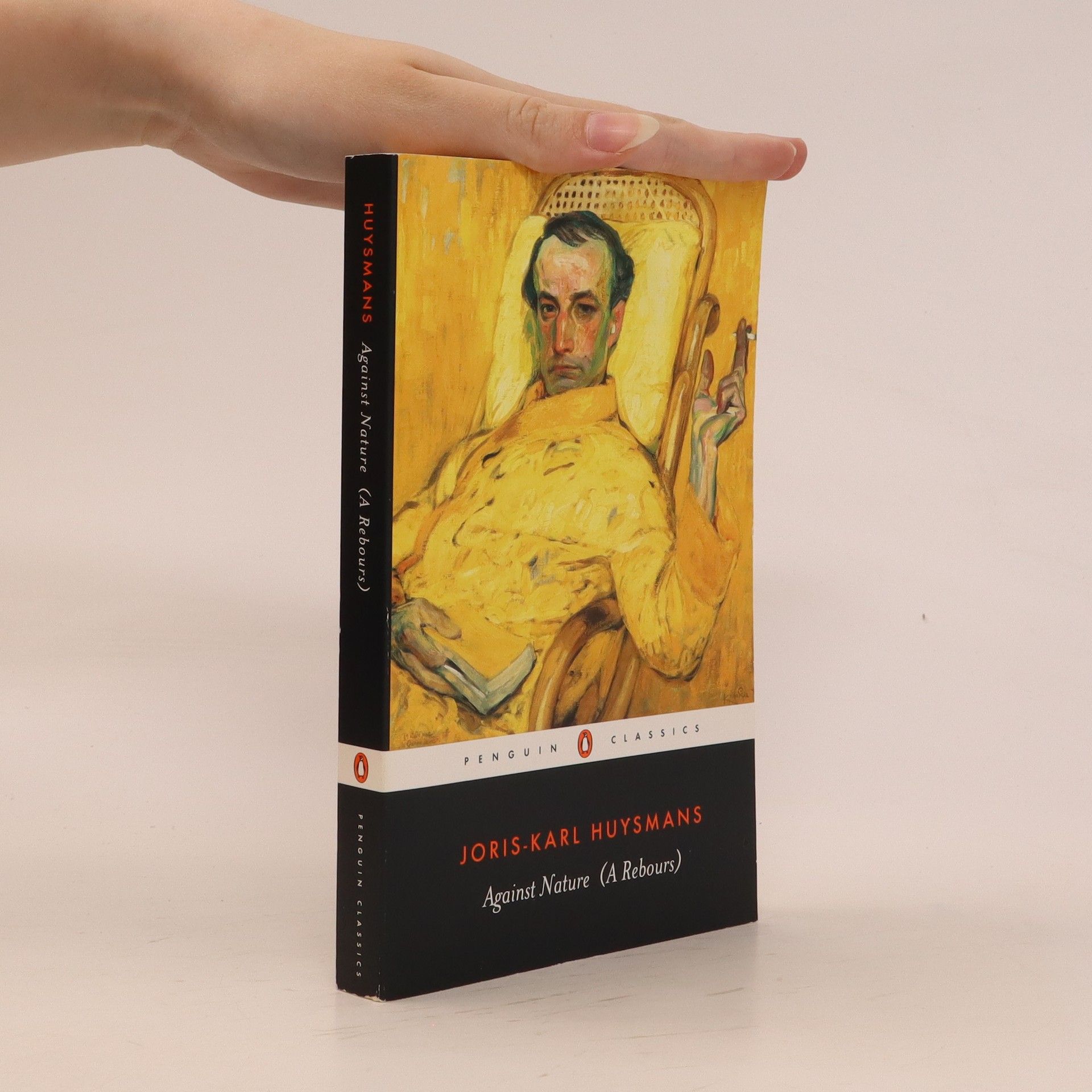À Rebours - Édition de Pierre Jourde
- 592 pages
- 21 hours of reading
This French novelist is celebrated for his distinctive literary voice, notable for its idiosyncratic use of language, vast vocabulary, and richly sensuous descriptions. His works are remarkable for their encyclopedic detail and sharp, satirical wit. Huysmans conveys a profound disgust with modern life and a deep pessimism, a worldview that led him first to the philosophy of Arthur Schopenhauer and later to the teachings of the Catholic Church.







The story follows Jean des Esseintes, an eccentric and ailing aristocrat who rejects the norms of 19th-century bourgeois society. Seeking solace, he immerses himself in a self-fashioned artistic existence, distancing himself from the world he despises. His journey explores themes of isolation, aesthetics, and the conflict between individual desires and societal expectations.
The author is renowned for his distinctive use of language and rich vocabulary, which shine through in his most famous work, À rebours. Initially linked to Naturalism, his writing later aligned with the decadent movement, reflecting his profound pessimism influenced by Arthur Schopenhauer's philosophy. Huysmans, who sustained a lengthy career in the French civil service, is celebrated for his satirical wit and extensive knowledge, making his contributions to literature both unique and impactful.
Exploring themes of religion and personal struggle, the novel delves into the protagonist Durtal's journey amidst the backdrop of 1880s Satanism. As he grapples with his faith, Durtal's perspective reveals the moral complexities of a modern world he finds repulsive. The narrative, marked by its naturalistic style, reflects Huysmans' controversial approach to social and political commentary. This edition features premium acid-free paper and presents a translation by Keene Wallis, enhancing the reading experience of Huysmans' thought-provoking work.
Der Schriftsteller Huysmans reist widerwillig nach Lourdes und findet dort eine überfüllte Pilgerstätte, die weit entfernt von der ursprünglichen Idylle ist. Trotz des Glaubenskitsches und des hektischen Treibens entdeckt er das Tiefmenschliche und Schöne und beschließt, darüber zu schreiben. Es wird sein letztes Werk.
This 1882 novella, a key work in Huysmans' literary development - prefiguring in its protagonist the figure of Jean des Esseintes, the hero of A rebours, written two years later - is accompanied here by another masterly study of human despair, 'M. Bougran's Retirement'.
Joris-Karl Huysmans (1848–1907) ist bekannt für den Dandy und Exzentriker Jean Floressas des Esseintes, der in einem ästhetisch gestalteten Haus lebt, abseits der Realität. In seinen Erzählungen thematisiert Huysmans die trostlose Leere des Angestelltendaseins, die als Kontrast zur kunstvollen Welt Des Esseintes erscheint. In einer seiner Erzählungen, »Ein Dilemma«, wird der Notar Le Ponsart mit einer schwierigen Entscheidung konfrontiert, die er der schwangeren Geliebten seines verstorbenen Mandanten stellt: Sie kann entweder als Haushälterin verschwinden und ihren Lohn erhalten oder auf ihren Status als Geliebte bestehen, was sie jedoch nichts einbringt. Weibliche Solidarität, verkörpert durch die Schreibwarenhändlerin Champagne, kann die bourgeoise Selbstgerechtigkeit nicht überwinden. Huysmans schildert mit beißender Ironie, wie autoritäre Sprache als Waffe eingesetzt wird, um die schwangere Näherin in ihr Verderben zu stürzen. Die Schlaflosreihe präsentiert unbekannte und vergessene Texte – von fantastischen Hirngespinsten bis zu erotischen Erzählungen – und bietet Stoff für schlaflose Nächte. Im ansprechenden Taschenlampenkegelformat laden sie zum Träumen ein, während die Stunden verstreichen und der Schlaf fernbleibt. Herausgegeben von Roman Lach.
Un ouvrier pris dans la tourmente de la Commune, déporté au bagne de Nouméa, s'évade et retrouve sa femme mariée à un autre... Mis à la retraite prématurément, un fonctionnaire se montre incapable de vivre en dehors du cadre étroit de l'administration... Sur son lit de mort, un riche paysan révèle sa double vie à son fils et lui demande de prendre soin de sa maîtresse...Voici des histoires insolites contées par trois maîtres du naturalisme.L'édition : - Questionnaires de lecture- Microlectures- Groupements de textes : - écrits théoriques sur le naturalisme- étude des motifs obsédants- Culture artistique : - cahier photos : réalisme et naturalisme- un livre, un film : Le Festin de Babette (Gabriel Axel).
This is a pre-1923 historical reproduction that was curated for quality. Quality assurance was conducted on each of these books in an attempt to remove books with imperfections introduced by the digitization process. Though we have made best efforts - the books may have occasional errors that do not impede the reading experience. We believe this work is culturally important and have elected to bring the book back into print as part of our continuing commitment to the preservation of printed works worldwide.